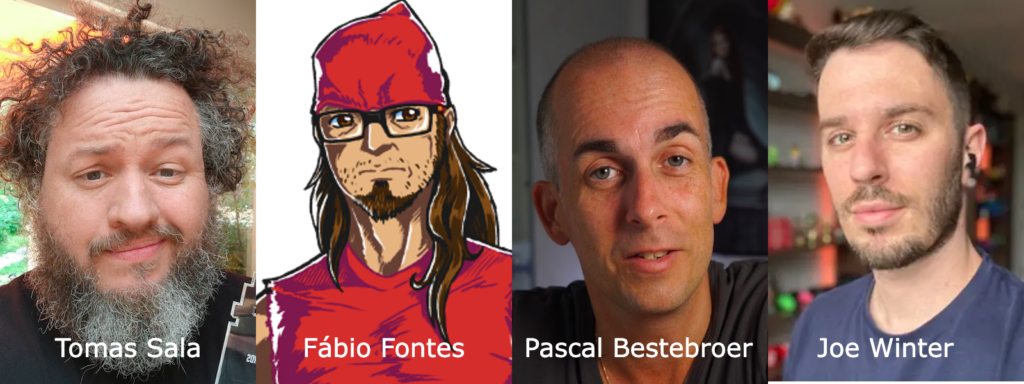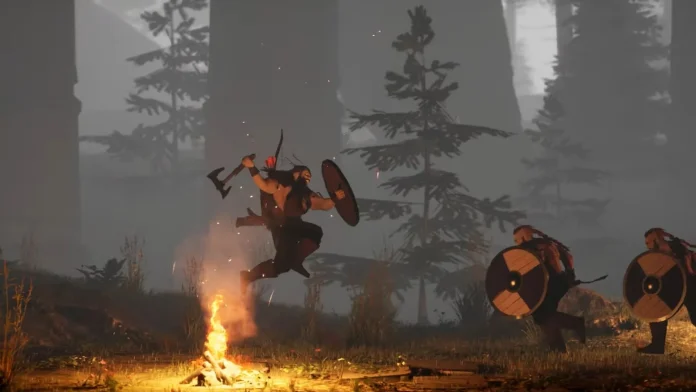Top image: Song of Iron
Introduction to a new series here on PreMortem.Games where we talk to solo game developers about their work, inspiration, motivation, fears and successes.
In the world wide games industry, worth over $180 billion, where international development teams of hundreds of people create sprawling adventures that take 50+ hours to complete, it’s easy to lose sight of its humble beginnings. Game development used to be a solitary affair, where a single person would do the coding, graphics and music. Sure, those were simpler times with simpler machines playing simpler games.
Jack of all trades
Many of the early classic games in the 70’s and 80’s were often made by just one developer. Like River Raid by Carol Shaw or Yars’ Revenge by Howard Scott Warshaw (yes, the ‘E.T.’ guy). Failing to get recognition for his work, developer Warren Robinett famously put his name in the Atari 2600 game Adventure for adventurers to find. But as time progressed and computer hardware became more powerful every year, game development grew progressively complex. Turning the Jack of all trades into development teams where every member has their own speciality. But that wasn’t the end of the lonesome bedroom coder.
With the rise of easy access to dedicated game development software and new platforms that would allow for smaller games (AppStore, Google Play Store, Xbox Live Arcade), a string of independent solo developers tried their luck at professional game development. We all know the success stories of solo projects like Braid (by Jonathan Blow), Minecraft (by Markus Persson), Papers, Please (by Lucas Pope) and Spelunky (by Derek Yu). But there are many more games nowadays that have been lovingly built by just one person. In the coming weeks we will talk to some of these lone wolves to see what makes them tick and how they do it.

Song of Iron
Developers like Joe Winter who, under the name of Resting Relic, created the Xbox and PC game Song of Iron. A gritty side scrolling adventure set in a Nordic world filled with enemies and mythical creatures, that took around 3 years to build. “Song of Iron started as just another little fun project to mess around with”, says Winter. “Unreal had gotten to a point where I as an artist could pretty easily code, which made everything seem possible.” After getting positive responses on Twitter and Reddit he decided to completely go for it, but going at it alone is not always easy: “I stay motivated by knowing how to handle the less fun times, the times where I am stuck on something or feeling like the game is not very good. That might be to take a few days off or to work on something on the art side to clear my mind.”
Buckle Up and Drive
Or like Fábio Fontes, who wanted to prove a point: “Far too many people were telling me ideas X or Y wouldn’t work, to the point that nothing ever got off the ground. So I thought: screw it!” He taught himself how to code and started creating games like his last one, Buckle Up and Drive. He explains the way he worked on that: “For what I’ve been doing lately it’s mostly putting something together as a base, and from there do whatever I feel will look cool. Or funny. Or both.” Wondering what motivates him to get through the development? “Probably a not so healthy mix of stubbornness and spite. Been working so far though.”
Regulator City
Some developers have been going solo for a long time now, like Pascal Bestebroer a.k.a. OrangePixel. He started developing games on his own 17 years ago. “I’m not against working with others. It just never really happened before”, he says. The big advantage of him working solo is speed of development: “From decision making, to asset creation and implementing those assets and ideas. Every weird idea I get is quickly drawn, animated, and implemented without having to go back and forth on graphical changes or gameplay tweaks.” Bestebroer documents his progress as part of a series of YouTube vlogs. He has a whopping 69 games behind his name and is working on number 70: Regulator City.
The Falconeer
Who says being alone limits your scope? Certainly not Tomas Sala, he has some pretty ambitious goals for the sequels to his BAFTA-nominated debut game The Falconeer: “I strongly believe in building IP even as a solo developer indie. My goal is to be like a fantasy writer and deliver an epic sprawl that players can dive into. A world and narrative thread to explore across a portfolio of games in various genres.” That sounds like a huge amount of work. Something Sala is aware of: “People often wonder how I am able to create the quantity of work for The Falconeer, and that is the trick. I channel my distractions into new content for the game, which is also my motivation to keep going. A new fortress or monster a day keeps the stagnation away.”
One of the main motivations of going solo is freedom. Tomas Sala: “My ambition isn’t necessarily to be a solo-dev, but rather to be free.” Fábio Fontes: “Undoubtedly full creative freedom. While it can be a double-edged sword, you’re free to try out whatever you want.” Joe Winter: “Maybe I’ll work with a few people but no more big teams. I want to have fun and make games people will enjoy.”
The Solo Dev Series will start next week.


I’d like to add Dungeon Royale made by YakiCL which recently shipped on Steam Early Access and currently has an 83% review score!